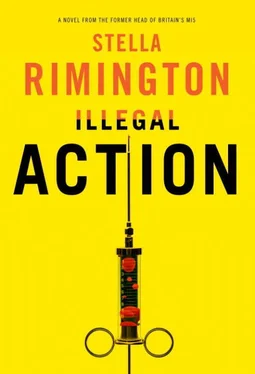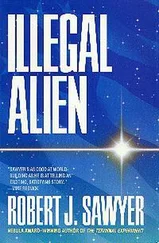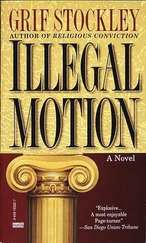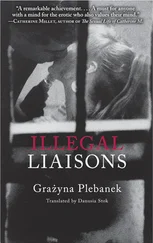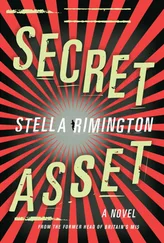In his flat Geoffrey Fane poured himself a whisky and sat down to contemplate the evening ahead. It was a pity Liz wouldn’t come in, she was an attractive girl and an evening or even a few hours in her company would have been pleasant. Thinking about her, as he gazed into his glass, he had the vaguest feeling that he had seen her before, a long time ago. A memory came back to him. It was the year he had been in the Winchester XI—the Eton match. He had been sitting with his pads on, waiting to bat, when he had noticed a girl on a deckchair a few yards away—the daughter of an Eton master or somebody’s sister, he didn’t know. She was deeply attractive in a way he couldn’t define. He had wanted to catch her attention, but she was intently watching the cricket, and then a wicket fell. As he got up to go in, she had unexpectedly called “Good luck” and smiled at him—a wonderful smile. That day he had scored seventy, and as he came back to the pavilion, holding up his bat to the applause, he had looked for her. But she had gone, and though he had searched all around for her, he had never seen her again. Life was like that: dreams, vanished opportunities. And now—Liz couldn’t have been born the day he got seventy against Eton, but she was that same girl, or her double.
“Tell Jane,” said Brunovsky.
She looked up warily as he came into the sunlit dining room, with Marco Tutti by his side. The Italian was exuberantly dressed this afternoon, in a suit the colour of milk chocolate and a pink shirt. He hesitated, but Brunovsky poked him in the ribs. “Go on, tell her.” He sounded very excited.
“We believe we have located Blue Mountain ,” Tutti said stiffly.
“Really?” Liz tried not to show her scepticism. “Where?”
“In Ireland. Where else?” said Brunovsky. He was just back from his weekly tennis match with another oligarch and was still wearing white shorts and a lime green Lacoste shirt. Liz noticed that his pale legs, matted with swirls of curly black hair, were heavily muscled—like those of a professional cyclist.
“Of course,” said Liz evenly.
Brunovsky looked at Tutti, and taking his cue the Italian started talking again. “An old lady called Cottingham is the owner. She lives about forty miles west of Cork.”
“Why is she coming forward now?”
“It seems the sale of Blue Field was in the local newspaper. There was a photograph of the painting which was almost identical to one Miss Cottingham has owned for years.”
“And no one else had ever noticed the likeness? Or was the picture in the attic?” asked Liz, a trace sardonically, wondering why on earth Brunovsky couldn’t see through this nonsense.
Marco shrugged. “Perhaps it was. But also, she is a—what is the word for someone who sees no one?”
“Recluse,” said Brunovsky, whose English vocabulary never failed to impress Liz. She tried not to groan—Tutti’s story was dismayingly predictable.
“Thank you,” said Marco. “Miss Cottingham got in touch with a nephew in Dublin and asked him to try and find a buyer.”
“And he approached you?” asked Liz.
“Actually, he spoke to Northam’s and they rang Harry.”
Brunovsky interjected. “Harry was the front man for the auction. Tamara did the phone bidding. I didn’t want it traced back to me.” He was tossing a glass paperweight back and forth between his hands, clearly impatient with these details. “None of this is so important, Jane,” he said sharply, though he smiled to take the sting out of his words. “Do you not see? Blue Mountain has been found and I want it!”
“Has anyone seen it yet?”
“No,” said Brunovsky, “but we know what it looks like. I have photographs in my study. Come.”
The three of them went down the hall towards the back of the house. In the oligarch’s office a smart leather file case lay on the partner’s desk, on top of a mound of newspaper cuttings and handwritten notes. Brunovsky picked it up and handed it to Liz, motioning her to the two-seater sofa. He stood facing her, his back to the desk, while Marco settled in the chair underneath the large portrait of the Cossack. Glancing up at the painting, Liz noted the horseman’s bellicose eyes.
Opening the folder, Liz saw several 10x8 colour stills, taken fronton but from various distances—the closest near enough to show the artist’s signature in a lower corner of the canvas. The painting was barely distinguishable from Blue Field . The same blue-black waves filled the canvas, the same thick texture to the paint. The only difference Liz could make out was an absence of the yellow slash she had taken for a tree, and a sense in this second painting of a looming, vertiginous height—presumably the “mountain” of the picture’s title. Otherwise the pictures were uncannily alike. Or cannily, thought Liz, who was now convinced this was a scam.
“What’s this?” she asked suddenly, pointing to a rust-coloured streak that ran across the upper right corner of the painting in the photo.
“Ah,” said Marco, lightly touching his goatee with a finger. “That we believe to be water damage.”
“Don’t tell me,” said Liz. “The burst pipe.”
“Exactly,” said Brunovsky, clapping his hands as if to praise Liz’s astuteness.
“But how did the picture get lost for so long?”
Brunovsky looked at Tutti, who started fiddling with his watch strap. “That remains a great mystery,” Tutti said. “No details have been forthcoming. But Miss Cottingham will explain everything when we meet her.”
“Meet her?”
“Yes, if we can come to terms,” said Tutti.
Tutti looked enigmatic now, but Brunovsky said impatiently, “I have no secrets from Jane, Marco. Not about my collection anyway,” he added with a sly grin.
“The picture will be rather expensive, I suppose,” said Liz dryly.
“More than Blue Field ,” said Brunovsky, as if he liked the idea. “Twenty million pounds will be enough, so Marco says.” A bagatelle, his attitude suggested, but then for Brunovsky it was.
“Marco says they want some money before they’ll meet us,” Brunovsky went on. “I believe the expression is earnest money.”
“What are they asking for?” enquired Liz sceptically.
“One million pounds,” Marco said, and shrugged to show it was out of his control. Liz noticed that this time when he stroked his goatee his hand was shaking. “If the sale falls through they will retain £100,000 for their trouble.”
Brunovsky clucked a caustic tongue. “Tell them that half a million is sufficient earnest money. To be returned in full if the sale falls through.”
Marco Tutti clasped his hands together, pursing his lips in a show of prim obedience. “Of course, if you say so. But I do not think Miss Cottingham will be flexible. She seems confident someone else will be happy to pay for the right of first refusal, if we don’t.”
Brunovsky stared at him. “Someone else?” he said. “Who do you mean? I thought she had come to us first. There’s someone else, is there?” He looked at Marco wide-eyed. “You don’t mean to tell me… Is it who I think it is?” He smacked a hand against his forehead and turned to Liz in almost comic consternation. “ Morozov! ” he hissed.
There was a silence. Brunovsky turned back to Tutti. “Forget what I just said. I’ll pay a million.”
For once Marco didn’t overplay his hand. “Do not concern yourself,” he said submissively. “I will tell the nephew that we accept their terms.”
Liz stared in amazement. She could not but admire Tutti’s tactical acumen. So this was the way oligarchs did business? A million for just an option to buy? With a sizeable non-returnable chunk. Suppose there was no painting, or just a fake? Surely Brunovsky must see how crazy this was? But maybe he was crazy—about Pashko at least, or perhaps about Morozov. She told herself she couldn’t hope to understand the rivalry between these two men.
Читать дальше
